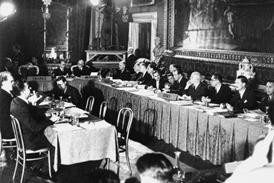A former law firm partner who admitted to 12 separate acts of dishonesty has been struck off the roll.
James Thomas Haigh misused client monies on several occasions, created false records and provided false information to his clients on the progression of their cases.
The Solicitors Disciplinary Tribunal found Haigh, admitted in 2008, to be an experienced solicitor. His repeated departure from expected standards was described as ‘serious’. Haigh had already agreed with the Solicitors Regulation Authority that he should be struck off, with this outcome rubber-stamped by the tribunal. He also agreed to pay the SRA’s £44,770 costs.
The SDT heard that Haigh, whilst a partner and practising from the Manchester office of north west firm Taylors Solicitors, had transferred client funds on six separate occasions to third parties without authorisation or consent from the client. These transfers came to a total value of £47,470.
Each time, money was due to third parties from Haigh’s clients, but for varying reasons the firm held insufficient funds to meet their liabilities. Rather than requesting additional funds from the clients, Haigh chose to divert monies belonging to other clients.
The tribunal heard that Haigh also created a time entry recording suggesting that he left a voicemail for a client regarding the transfer of £10,000 and asking that client to confirm in writing. The transfer was than executed without the client’s consent.
Haigh told his firm that he had the client’s agreement, and the creation of the time recording entry was found to be an attempt to create a ‘false trail to support the false account he had provided’.
On another matter, Haigh provided information to a client on four separate occasions suggesting that a claim had been made on his behalf. This proved to be false information, despite the client’s instructions that the claim should be brought. Haigh even went to the lengths of giving a date for the listing of the claim and advising his client that the opposing side had requested an adjournment.
Haigh accepted that any mitigation he advanced did not amount to exceptional circumstances of the kind that might prevent his being struck off. In mitigation not endorsed by the SRA, he stressed that he had no authority to sign off transactions from the office or client account, which was the responsibility of the firm’s equity partners (there was no suggestion of any wrongdoing on anyone else’s part). Haigh also said he had been suffering significant family stress at the time, with three infant children, and the pressures of work affected his ability to carry out day-to-day duties.






























